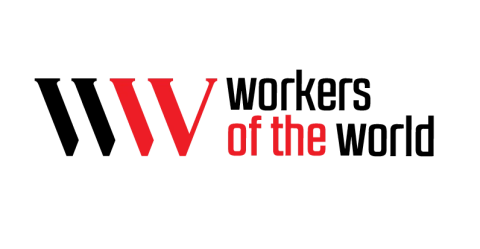
Education, how, what and for whom?
The Workers of the World journal invites submissions for the upcoming themed issue, Education, what, for whom, how? The deadline for submissions is July 15, 2025.
Education has been at the centre of some of the most important debates in recent years. Words and expressions such as burnout; students’ mental health pathologies; workers’ “blackout” and inadequate training; teacher shortages; digital “teaching”; have spread to the “common sense” lexicon. In parallel, a new wave of strikes, from Chicago to South Africa, from Amsterdam to Lisbon, has since 2008 put teachers’ struggles i.a. for public education in the forefront of social movements, in what seems to be a trend toward a global response to the degradation of public services in the era of declining capitalism.
As far as the ruling classes are concerned, education is central not only because of its sheer reach in society — more than 1.5 billion students and teachers attend the world’s schools and universities every day, which makes them decisive crucibles for the internalisation of ruling ideologies — but also because of the demands of the labour market in a context of radical transformations in the world of work and, more broadly, in the capitalist mode of production itself. In a number of countries around the world the order of capital drives the relentless modification of curricula to the detriment of scientific and historical-social education, as well as the accelerated marketisation of the sector in line with the velocity of capital accumulation and investment; it promotes digitisation, automation and AI in line with algorithms designed by corporations, as well as increasingly precarious labour relations to make up for teacher shortages (caused, strictly speaking, by low salaries and terrible working conditions). Despite growing xenophobia, capital can’t help but deal with the integration of migrant populations through the educational apparatus, albeit as an industrial reserve army. Faced with such onslaughts, everyday educational practices end up assimilating crucial aspects of bourgeois cultural policies. In this, the liberal view re-signifying multiculturalism as a paradigm of diversity and inclusion without any connection to the material basis of societies prevails. The same applies to the active methodologies that remove the ontological dimension of labour from human agency, as if the profound educational inequalities could be overcome by operative procedures in educational processes.
As far as the working classes are concerned, however, there is an evident deepening of strategic dilemmas, as expressed in critical theories. Teaching workers’ struggles around the world corroborate the generalised dissatisfaction with capital’s proposals. In academia questions are also being asked. However, education progressives are far from a consensus. Amid the liberal educational thinking, some progressive conceptions have adopted a constructivist vision that distances students from work as an educational principle on the basis of its ontological, ethical and political dimensions, as advocated by Vygotsky and his interlocutors. Instead of knowledge mediating with nature and society, capital celebrates so-called “skills” — a subject that is hardly broached by many pedagogical currents. Within dialectical materialist conceptions some have come to support the idea that the meaning of education is disinterested knowledge (not aimed at the unilateral training of the workforce), an education that aims for real universalism, overcoming false liberal universalism and committed to the knowledge and explanation of the totality, always in the process of searching for truth through science, which are central dimensions of public education in the face of dogma and obscurantism. Historical-critical pedagogy rejects educational dualism and stands for integral education: in Marx’s terms, omnilateral. The point is discussing the state of the struggle against commercialisation of education and for the protection of the freedom of teaching at all levels of education.
This dossier aims to address these issues and invites all teachers, struggle collectives, researchers and scientists to reflect critically on education and propose solutions that are both a critical reflection on education and a proposal for transformative action.
The deadline for submissions is July 15, 2025, and should be sent to the Executive Board at workersoftheworld1848@gmail.com
